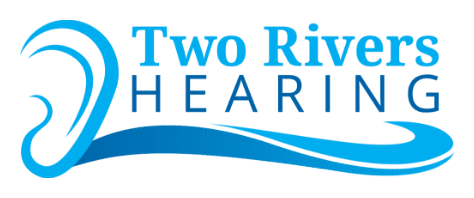How to Interpret Complex Hearing Test Results
Getting your hearing tested can feel like stepping into unfamiliar

By: admin | February 28, 2024
The role your job plays in your hearing health is often not given the attention it deserves. Some professions, due to regular exposure to loud noises, have a higher chance of leading to hearing problems. These occupational hazards are a fact of life for many and can significantly influence their quality of life as time goes on. This article aims to spotlight such professions, the risks they carry and provides practical advice on maintaining excellent hearing health in the face of these challenges.
Keeping your hearing health in check at work is incredibly important. Wearing protective gear is crucial in a noisy environment, and taking regular breaks from the noise can also be beneficial.
Take, for example, the difference between a librarian and a construction worker. The librarian spends their day surrounded by quiet whispers and the gentle rustling of book pages, while the construction worker’s daily environment is filled with the constant noise of jackhammers and heavy machinery. The construction worker, exposed to high levels of noise consistently, has a significantly higher chance of developing hearing loss over time. This comparison emphasizes the importance of understanding job noise exposure and its potential impact on your hearing health.
Jobs like construction, mining and manufacturing often carry a high risk of noise-induced hearing loss due to continuous exposure to loud noises. Similarly, jobs in the music industry or military service also carry a significant risk. Musicians, DJs and soldiers are regularly exposed to high decibel levels which can lead to hearing loss over time.
You might be wondering how you can protect your hearing at work. Regular use of ear protection like earplugs or earmuffs can help reduce the impact of loud noise on your ears. Also, taking breaks from noisy environments when possible can give your ears some rest.
Signs that your job is affecting your hearing could include frequent ringing in your ears after work or difficulty hearing conversations in noisy environments. Unfortunately, most types of noise-induced hearing loss are permanent. However, with the assistance of a specialist and the right equipment like hearing aids, you can improve your ability to hear and communicate effectively.
The life of a construction worker is filled with the constant noise of heavy machinery, power tools and loud engines. This noise, part of their everyday work environment, poses a significant risk to their hearing health. For construction workers, taking proactive steps in preserving their hearing health is essential.
To protect their hearing, construction workers are advised to use hearing protection like earmuffs or earplugs specifically designed for industrial environments. Earmuffs provide a robust barrier against loud noise and are ideal for prolonged exposure to high noise levels. Earplugs, on the other hand, are compact and portable, making them convenient for workers who need to move around frequently. Both types of hearing protection offer effective noise reduction when worn correctly and can help preserve the long-term hearing health of construction workers amidst the noisy conditions of the job site.
Sound engineers and music professionals face unique challenges when it comes to preserving their hearing health. Their careers revolve around the creation and manipulation of sound, often at high volumes. This constant exposure to loud noise can potentially lead to hearing loss over time.
A study published in the Journal of Occupational and Environmental Hygiene found that 28% of professional musicians suffer from tinnitus as a result of their work. This statistic emphasizes the need for these professionals to take proactive steps towards protecting their hearing health.
One common form of hearing protection used by musicians is custom-molded earplugs. These earplugs are individually crafted to fit the unique contours of the wearer’s ear canal, providing a comfortable and secure seal for maximum protection. Custom earplugs are available in various attenuation levels, allowing musicians to customize the amount of sound reduction while preserving the clarity and fidelity of the music they hear. Additionally, custom earplugs are often designed with flat frequency response characteristics, ensuring that music remains balanced and natural-sounding even with attenuation.
In-ear monitors (IEMs) are another essential tool for musicians seeking hearing protection and improved sound monitoring on stage. These devices fit snugly into the ear canal and deliver personalized audio mixes directly to the wearer, allowing musicians to hear themselves and their bandmates clearly without relying on stage monitors or amplifiers. In addition to providing hearing protection by isolating the ears from ambient noise, IEMs offer enhanced control over sound levels and can help prevent overexposure to loud stage volumes. Many professional musicians opt for custom-molded IEMs, which offer superior comfort, sound isolation and audio fidelity compared to generic off-the-shelf models.
Emergency personnel might not be the first to come to mind when thinking about high-risk jobs for hearing loss. However, their work environment often includes loud sirens, noisy equipment and high-stress situations that can impact hearing health. From ambulance drivers to firefighters, these brave individuals face an underrated risk of hearing loss.
Their role in our society is vital. They’re there for us in times of crisis, often working in conditions that are far from ideal. But amidst the chaos and urgency, the constant exposure to loud noises can take a toll on their hearing over time. This is why it’s important for them to be aware of this risk and take necessary precautions.
One common type of ear protection used by emergency responders is earmuffs with built-in communication systems, allowing wearers to communicate effectively while still blocking out harmful noise. Additionally, some responders use custom-molded earplugs that provide a secure and comfortable fit, ensuring reliable protection against loud sounds without compromising situational awareness. These ear protection solutions are essential for preserving the hearing health of emergency responders, enabling them to perform their critical duties safely and effectively amidst the challenging conditions they face.
Soldiers face significant risks of hearing loss due to exposure to high levels of noise from various sources, including gunfire, explosions and heavy machinery, during combat and training exercises. Prolonged exposure to such loud noises without adequate hearing protection can lead to irreversible hearing damage and impair their ability to effectively communicate and maintain situational awareness on the battlefield. Soldiers may encounter unpredictable noise levels in combat situations, making it challenging to consistently protect their hearing.
To lower the risk of hearing loss among soldiers, military organizations prioritize the use of specialized hearing protection designed for combat environments. These include tactical earplugs with filters that allow soldiers to hear ambient sounds while providing protection against loud noises, like gunfire and explosions. Additionally, earmuffs with electronic noise-canceling features are commonly utilized to enhance hearing protection while maintaining communication capabilities. Soldiers are educated on the importance of proper hearing protection and encouraged to wear hearing protection consistently during training exercises and combat missions to preserve their auditory health and overall effectiveness in the field.
In the world of manufacturing, we find another profession grappling with the issue of noise-induced hearing loss. The continuous hum and clatter of machinery, often overlooked, poses a significant threat to the hearing health of manufacturing workers.
One of the most recommended types of ear protection for industrial workers is earmuffs with noise reduction ratings (NRR) suitable for their specific work environment. These earmuffs typically feature adjustable headbands and cushioned ear cups to ensure a comfortable fit and optimal seal against the ears, effectively reducing noise exposure. Additionally, some industrial workers opt for custom-molded earplugs made from durable materials that conform to the unique shape of their ear canal, providing reliable noise attenuation while allowing for comfortable long-term wear.
The aviation industry, often associated with glamour and excitement, has its share of noise hazards that can affect the hearing health of its employees. From ground crew to pilots, the constant exposure to loud engine noise and high-frequency radio communication can pose significant risks.
These professionals are regularly exposed to noise levels that far exceed safe limits. For instance, ground crew members working near jet engines are exposed to sound levels reaching up to 140 decibels – a level that can cause immediate damage to your hearing. Similarly, pilots and air traffic controllers have to deal with the continuous chatter of radio communication which can lead to long-term hearing issues.
For these professionals in the aviation industry, proactive steps towards preserving their hearing health are essential:
The importance of regular hearing assessments, particularly for those in high-risk jobs, cannot be understated. These check-ups play a key role in early detection of potential issues. If you’re routinely exposed to loud noises at work, these check-ups can help identify any changes in your hearing before they become serious problems. This allows for timely intervention and can significantly improve your long-term hearing health.
Additionally, these assessments provide an opportunity for professionals to discuss any concerns or symptoms with an audiologist. This dialogue can lead to personalized advice and strategies to better protect your ears on the job. Taking care of your hearing today means ensuring you can continue doing what you love tomorrow.
Maintaining your hearing health, especially in high-risk professions, is essential. With the right precautions and regular check-ups with an audiologist, you can reduce the risk of noise-induced hearing loss.
If you’re concerned about your hearing health due to occupational hazards or simply wish to learn more about protecting your ears at work, we invite you to reach out to us at Two Rivers Hearing in Melbourne, FL. Our team of dedicated professionals is here to guide and support you towards optimal hearing health, just give us a call at (321) 499-2488. We are committed to providing personalized care tailored specifically for you and your unique needs.
Tags: hearing loss and mental health, hearing loss symptoms, types of hearing loss

Getting your hearing tested can feel like stepping into unfamiliar
By: admin | May 23, 2025

Your inner ear manages both hearing and balance, using the same small
By: admin | January 26, 2025

Adapting to changes in hearing can take time, and it’s not uncommon for
By: admin | December 23, 2024
